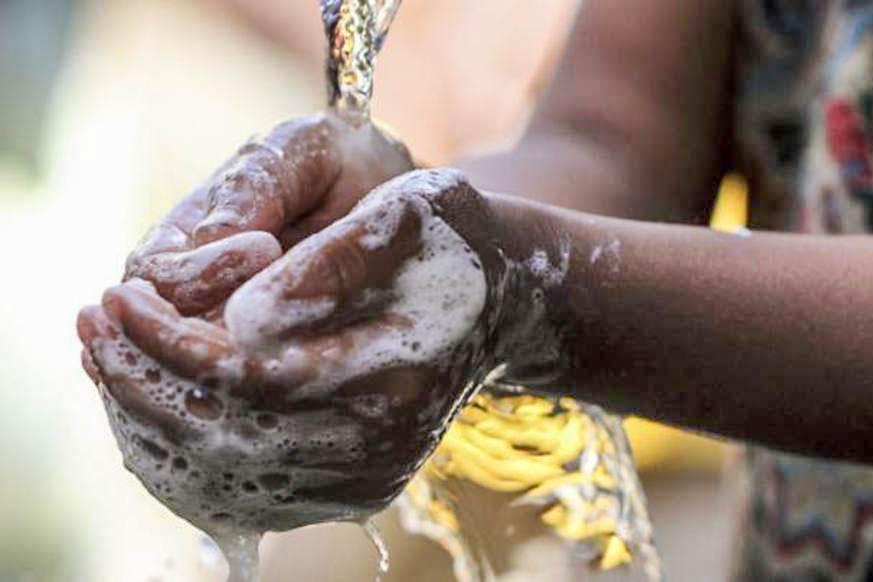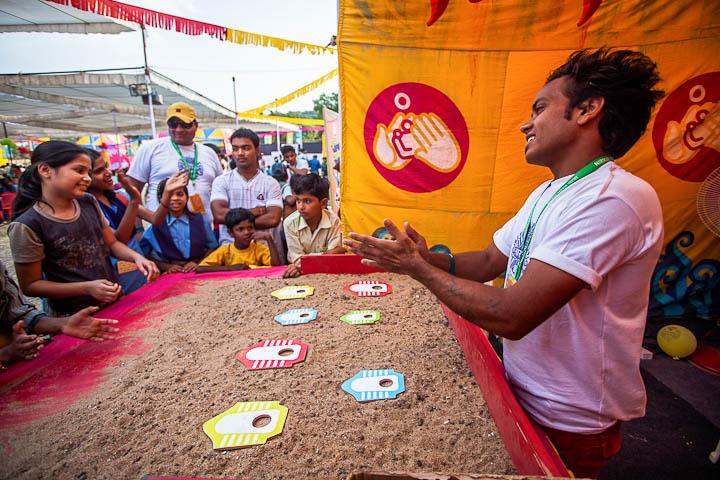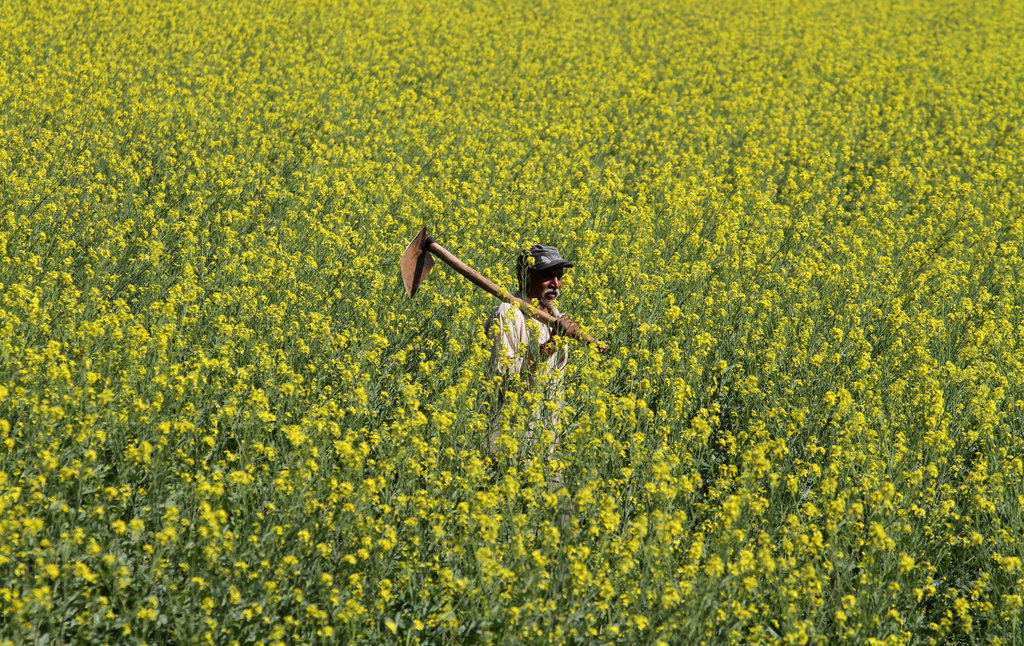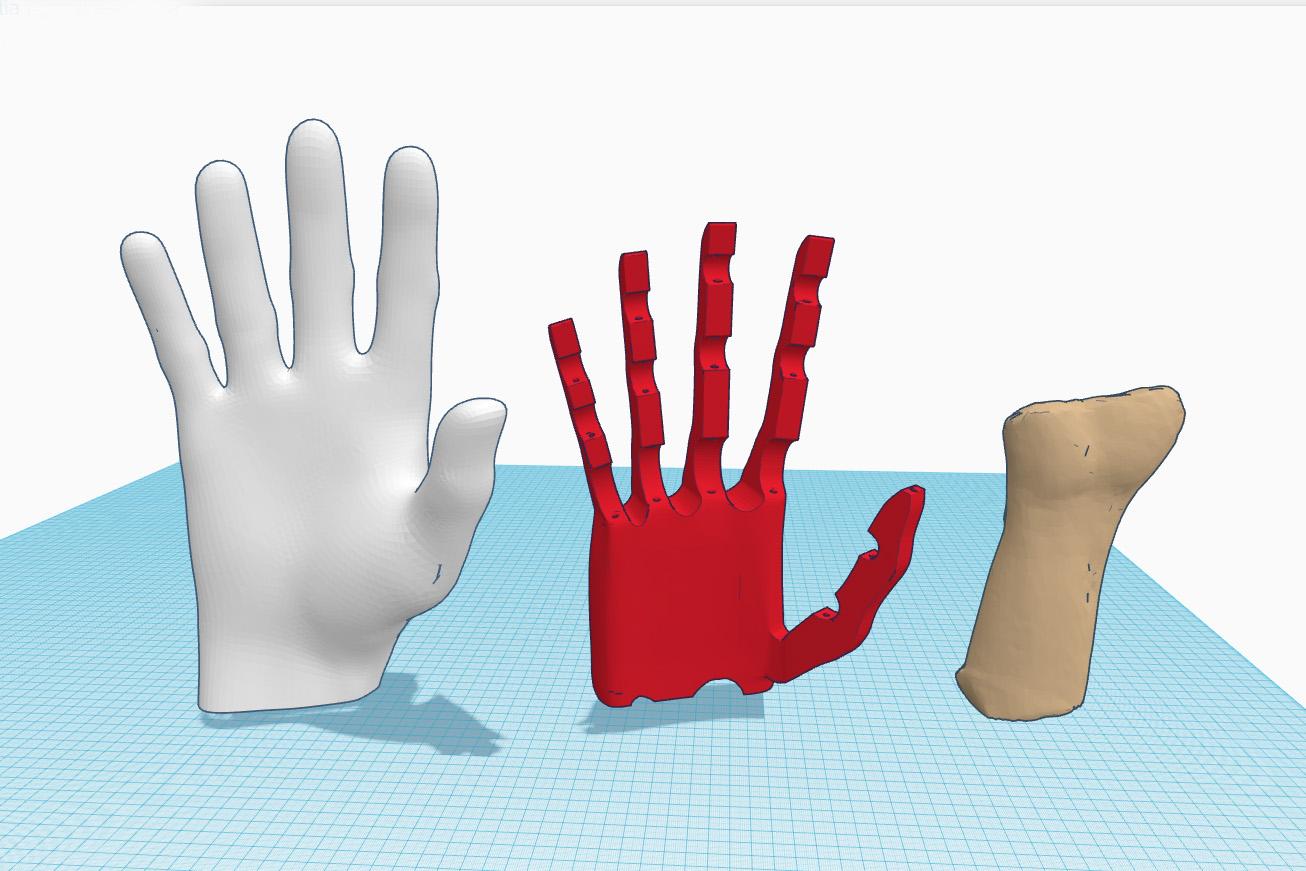Is a Swiss-funded handwashing project in India a washout?

A mobile fun fair to encourage Indians to wash their hands was found to have little effect on their behaviour, according to an assessment by researchers. The campaign cost Swiss taxpayers over CHF1 million and similar projects are ongoing in other countries.
“Tatti” – slang for shit in Hindi – was the title of the musical number judged the best sanitation-themed song in a competition organised by non-profit group WASH United as part of a projectExternal link funded by the Swiss Agency for Development and Cooperation (SDC). The composers of the song, which had fart-like noises embedded in it, took home INR100,000 or around CHF1,500 worth of prizes.
It was part of a roving fun fair called “The Great Wash Yatra” that travelled across six Indian cities for around 50 days entertaining the locals with Bollywood dancing and slick “edutainment” games. The objective was to encourage locals to wash their hands and thereby prevent communicable diseases like diarrhea. It is estimated that only 15% of Indians wash their hands after defecation and doing so could reduce the risk of getting diarrhea by 40%.
The SDC allotted CHF1.2 million ($1.18 million) to the project and refers to it as a “ground-breaking awareness-raising campaign” on its website.
Report card
The video shows locals having a lot of fun playing the handwashing games and dancing. But was the campaign effective in achieving its goal of changing people’s behaviour when it came to hygiene?
Not according to a study conducted by Swiss government-funded research institute Eawag. After interviewing 687 visitors before and after visiting the campaign, the researchers concluded that it “had little effect on the intention to wash hands with soap”.
“WASH United were looking for a different and unique way to raise awareness and that is why they went for the fun fair option,” Hans-Joachim Mosler, a professor at Eawag and one of the authors of the study, told swissinfo.ch. ““It was a nice awareness building exercise but it did not really change behaviour.”
The fun fair was the brainchild of WASH United’s CEO Thorsten Kiefer, who wanted to give sanitation campaigns a positive image. His idea to combine sanitation awareness raising with the 2010 football world cup in South Africa, attracted a lot of attention. He was approached by Indian stakeholders who wanted to replicate the concept of the World Toilet CupExternal link campaign in Africa. The Yatra or fun fair model was chosen for India as it is a traditional format used by social movements to get their message across in the country.
“We feel the project was a success given the large number of people reached, extensive media coverage and getting the Indian government to think differently about innovation in sanitation,” he says.
But Mosler is not convinced that the project achieved any worthwhile behaviour change when it came to washing hands with soap.
“There is no scientific knowledge on how these handwashing games can change behaviour. People don’t change by simply playing a game,” he says.

Another methodology issue was the choice of target groups. According to Mosler, if diarrhea prevention was the main goal then children under the age of five should have been the main focus of the Indian campaign. To reduce deaths among this vulnerable age group the campaign should have targeted caregivers like mothers, grandmothers and elder sisters instead of trying to reach everybody through educational games at a fun fair.
Kiefer defends his decision to opt for a broader target audience. According to him, women have always been the target for all manner of development projects from education to vaccination.
“We felt it was time to engage men a lot more, as they are overlooked and all the burden for taking the action is put on women,” he says.
Surprisingly, the SDC is not disappointed by the outcome, even if impact on behaviour change was negligible.
“The project was in no way a failure,” says a spokesperson from the government body citing the influence it had at a political level in getting the Indian government “to engage in an exemplary manner over issues of sanitation and hygiene, including handwashing and menstrual hygiene”.
Lessons learned
While the fun fair may have attracted thousands of visitors, generated a lot of media coverage and received political support, but it still had little effect on the intention to wash hands among the target population. Mosler suggests that WASH United should have first commissioned a baseline study well in advance to understand the mindset of the target population and only then develop interventions.
“Instead it was the other way round: here is a good idea, let’s do it and later measure the impact,” he says.
Ina Jurga, head of behaviour change communications at WASH United, admits she would do things differently second time around.
“Ideally, we would have liked to have the results of Eawag’s baseline survey way before the Yatra so we could feed the results into the project design,” she says. “However, at the time the Indian government changed the project locations repeatedly until three weeks before the start which didn’t give us enough time to do this.”
Mosler admits that very few projects even bother to measure the impact of their intervention, let alone do a baseline study. His institution Eawag is working to make amends on another SDC handwashing projectExternal link focusing on Zimbabwe and Burundi worth CHF1.65 million, with WASH United on board as consultants.
This time they did a baseline survey of children and their caregivers. An assessment was carried out six weeks after the end of the campaign. The result: Handwashing frequency at key moments – after going to the toilet and before handling food – increased by 28% among caregivers and 23% among schoolchildren.
As for the SDC, it plans on continuing to fund handwashing initiatives but will incorporate the results of its Zimbabwe and UzbekistanExternal link projects to inform its decision-making in the future.

In compliance with the JTI standards
More: SWI swissinfo.ch certified by the Journalism Trust Initiative





You can find an overview of ongoing debates with our journalists here. Please join us!
If you want to start a conversation about a topic raised in this article or want to report factual errors, email us at english@swissinfo.ch.